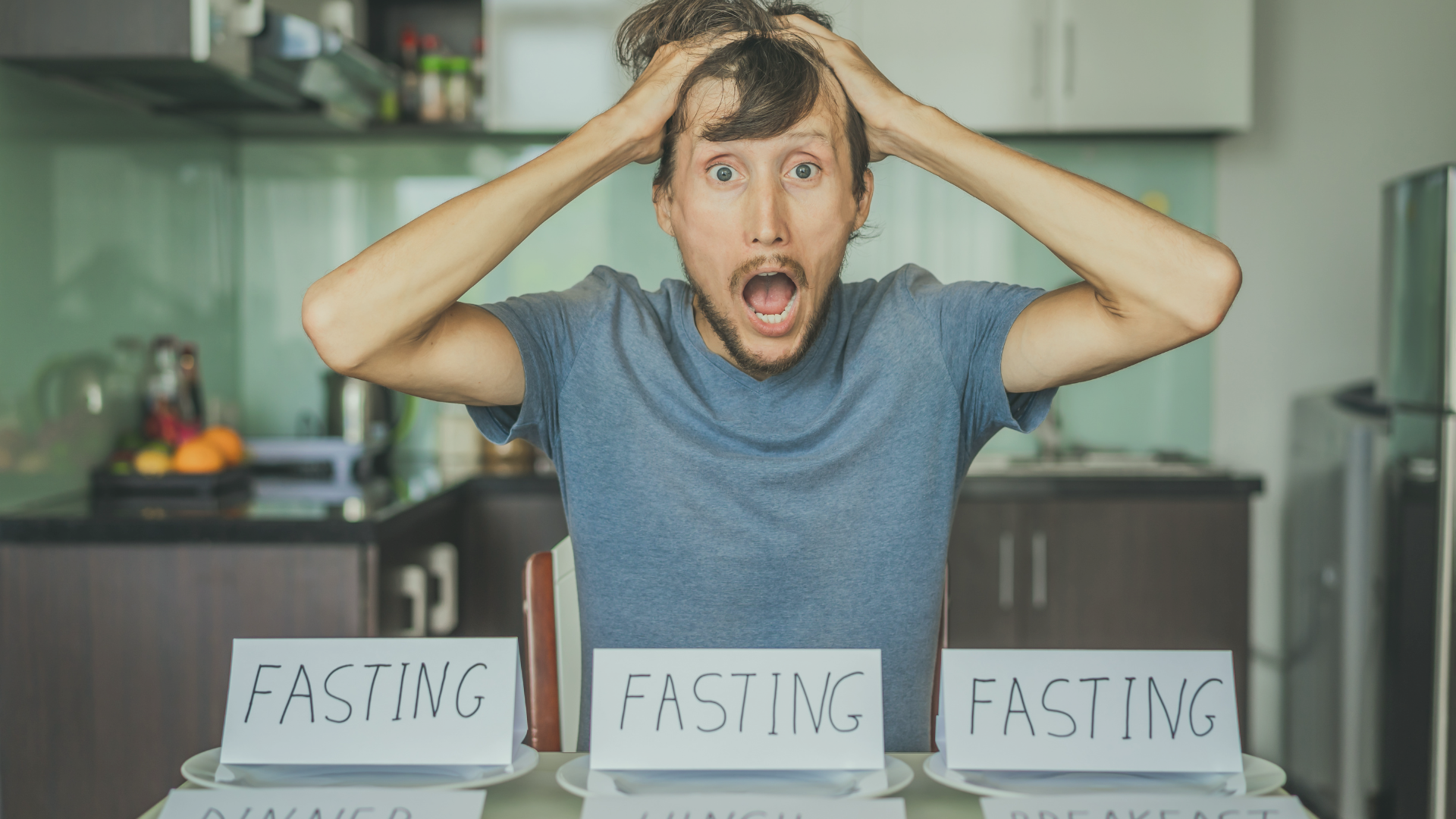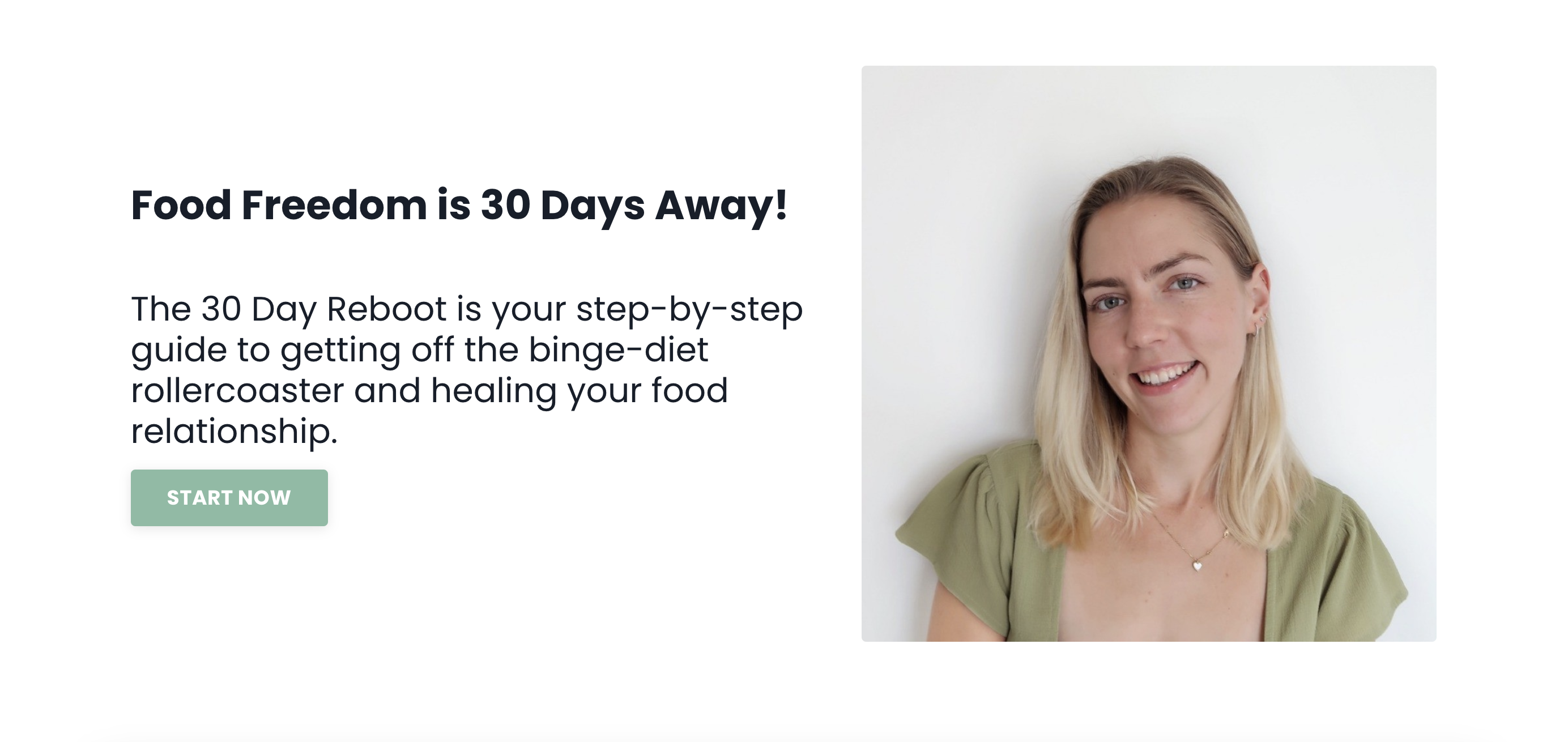Aftermath: Will I Gain Weight After ONE Day of Binge Eating?
Aug 10, 2023
"I Always Ask Myself… Will I Gain Weight After One Day of Binge Eating?"
Curious about binge eating consequences? Discover if one day of overeating leads to weight gain and learn how to manage it effectively through insights about positive food relationship and health.

Imagine a situation where you've planned to be on a big eating spree, say there’s this family occasion but instead, change of plans! You suddenly tried your best to eat just a small portion, or maybe even smaller than your normal food intake because you’re scared that you’ll hear comments like “Calm down, you wouldn’t want to look like someone else’s child because our family is known for our slim genes!”, “Wow, you eat like you work a physical labour 9-5!” or “You eat a lot, make sure to burn that right away or else you’re going to regret it.”, so you'd rather do that and hold your hunger in then wait until it’s time to go home and binge inside your room because there, in that dark enclosed room, no one else will be judging you and your food choices. But… that moment when you've eaten way more than you planned because you held the urge to binge the whole family-occasion time, you're now feeling really anxious. It's like a dark cloud hanging over your goal of losing weight. You start worrying: "Did I ruin all my progress? Will this one overeating episode make me gain a lot of weight?"
Lots of people who've struggled with losing weight can understand this feeling. It's really tough when you've overeating, and you feel like you can't do anything about it. It makes you wonder if all the hard work you put into losing weight over the past few weeks or months was for nothing.
So, here's the big question: Can just one time of overeating make a huge difference on the scale? Will it really mess up all your efforts? We're going to explore the science behind this common worry and find out the truth about whether a single overeating episode can throw your weight loss plans off track. We'll separate the real facts from the things that might not be true and give you the information you need to handle these uncertain moments on your journey to becoming a healthier version of yourself.
Right on the spot…

Truth is, there’s NO WAY that anyone will gain weight after one day of binge-eating. Why? Because there is no such thing as a one-day binge! The perfect term for that is either an “occasional festive meal day” for those who are already in control with their body and properly know how to balance their food intake or “over-eating” for those who ate more than what they usually or normally eat for a day such as when there’s an occasion or gatherings. Binge-eating is only considered a “binge” when the intake of an unusual or huge amount of food has been happening repetitively or MULTIPLE TIMES IN A ROW. So if it only happens for a day, you will not gain a drastic amount of weight from overeating.
Since the question about whether binge eating for ONE DAY will make you gain weight, which it will not, it’s also important to know about the other things that can possibly happen if you binge eat for ONE DAY which is essential so that you can help or guide yourself on how to find balance and bounce back whenever you find yourself binge for one day.
When you engage in a binge eating episode for one day, several things can happen to your body and mind. Keep in mind that the effects can vary from person to person, but here are some common outcomes of a one-day binge:
- Calorie Intake: Your calorie intake for the day may greatly exceed what your body needs, potentially leading to a calorie surplus.
- Digestive Discomfort: Consuming excessive amounts of food can strain your digestive system, causing bloating, gas, and discomfort.
- Blood Sugar Spikes: High intake of sugary or processed foods can lead to rapid spikes in blood sugar levels, followed by crashes, leaving you feeling tired and lethargic.
- Guilt and Emotional Distress: After a binge, feelings of guilt, shame, and emotional distress are common, which can impact your mental well-being.
- Impaired Hunger Regulation: Binge eating can disrupt your body's natural hunger and fullness cues, making it harder to eat mindfully.
- Weight Fluctuations: A one-day binge may lead to temporary weight gain due to water retention and the actual weight of the food you've consumed.
- Slower Digestion: A large meal can slow down digestion, affecting the time it takes for your body to process and absorb nutrients.
- Nutrient Imbalance: Bingeing on certain types of foods may lead to an imbalance in nutrients, missing out on essential vitamins and minerals.
- Impact on Metabolism: While one day of overeating is unlikely to have a major impact on your metabolism, chronic bingeing over time can potentially affect metabolic rate.
- Physical Discomfort: Excessive eating can cause physical discomfort, including feelings of fullness, stomachache, and nausea.
- Disturbed Sleep: Binge eating may disrupt your sleep due to discomfort, anxiety, or fluctuations in blood sugar levels.
- Mood Changes: Blood sugar fluctuations and emotional distress can lead to mood swings and irritability.
It's important to remember that one day of binge eating doesn't define your overall health or progress. If this binge or overeating becomes a frequent occurrence, it is best to seek support from a healthcare professional or mental health expert because this recurrence can lead to a major issue that should be taken seriously, such as the Binge Eating Disorder. What is it?
Binge eating is a serious eating disorder where a person repeatedly eats unusually large amounts of food in a short period of time, feeling like they can't control their eating during these episodes. Imagine feeling overwhelmed by an intense urge to eat, almost like a powerful hunger that's difficult to resist. During a binge, someone might consume thousands of calories in one sitting, often eating more calories quickly and without enjoyment. It's important to remember that binge eating is different from simply overeating on occasion; it's a pattern of behaviour that occurs regularly and leads to significant distress. People with binge eating disorder may use food as a way to cope with emotions, stress, or difficult situations, but afterwards, they typically feel guilty, ashamed, and upset about their lack of control. Binge eating can have serious physical and emotional consequences, making it crucial for those affected to seek professional help and support.

You are probably thinking, “This must be a joke, how can I be so sure that I will not gain weight if I overeat even just for one day? I literally feel heavy and puffy right after I do it. That’s why it scares me, because I feel it! There’s no way that it won’t make me gain weight.” It’s common to confuse one’s self to differentiate “overeating” and “binge eating” but way more common to be scared when you feel the certainty of gaining a lot of weight when you go past your normal food intake or eat a lot of food, even for ONE DAY. Relax, here’s a list to prove the fact that binge eating or overeating for ONE day is NOT going to make you GAIN WEIGHT:
- Caloric Balance: One day of binge eating may not lead to significant weight gain because weight management is determined by caloric balance over time. In other words, weight changes occur when there is a sustained surplus or deficit of calories. A single day of overeating won't cause a large enough caloric surplus to immediately translate into noticeable weight gain.
- Thermic Effect of Food (TEF): Our bodies burn calories to digest and process the food we eat, known as the thermic effect of food. Studies have shown that the TEF increases with larger meals, meaning that the body expends more energy to metabolise the excess food consumed during a binge. This slightly offsets the caloric intake and contributes to a lower net calorie gain.
- Glycogen Storage: After a binge, the excess calories are initially stored as glycogen in the liver and muscles. Glycogen is the body's primary energy reserve. The storage of glycogen does not lead to immediate fat gain; it's only when glycogen stores are full that the body starts converting excess calories into fat.
- Water Retention: High-calorie meals can cause temporary water retention as the body works to process the extra carbohydrates. Water retention can lead to a temporary increase in weight, but it's not indicative of fat gain. Drinking enough water and engaging in physical activity can help flush out excess water weight.
- Metabolic Rate: Studies have found that a single day of overeating does not significantly alter a person's basal metabolic rate (BMR), which is the number of calories the body burns at rest. While prolonged overeating can affect metabolism, a single day's binge is unlikely to cause substantial changes.
- Weight Fluctuations: Body weight naturally fluctuates due to factors like hydration, digestion, and hormonal changes. A one-day binge can be masked by these normal fluctuations, making it challenging to see a significant weight gain on the scale immediately.
- Long-Term Habits: Weight changes are influenced more by long-term eating habits than occasional overeating. Consistently consuming excess calories over an extended period is what leads to weight gain, not occasional indulgences.
It is a fact that “one day” of binge eating might not cause immediate weight gain, but it's essential to remember that unhealthy eating patterns can lead to other negative health effects over time. Maintaining a balanced and nutritious diet, coupled with regular physical activity, is key to overall well-being. If binge eating becomes a recurring pattern, seeking support from a healthcare professional or a registered dietitian is crucial to address any underlying issues and establish healthier eating habits.

Do you want to start taking care of your body or health but extremely clueless on how to do it?
Scientifically Supported Tips to Prevent Weight Gain After One Day of Binge-Eating or Overeating:
It's common to feel this overwhelmed after bingeing on 1000s of calories, and it's understandable that all you're thinking about is mitigating any 'damage'. But it's important to get to the root of the bingeing and understand why it happened so that you can address it. It's easy to want to feel in control after an out-of-control binge by hyper fixating on your weight and conjuring up a weight loss plan. But you'll feel even more in control by solving at the root. Here’s a free masterclass about “Why You’re Still Binge-Eating and How to Stop” which can help in kick starting your journey to getting a binge-free life, plus use these tips as add ons!

- Stay Hydrated: Drinking plenty of water can aid in digestion, help flush out excess sodium, and temporarily increase your metabolic rate, potentially offsetting some calorie intake.

- Choose Fiber-Rich Foods: Consuming foods high in fibre, such as fruits, vegetables, and whole grains, can help you feel fuller for longer, reducing the likelihood of further overeating.

- Engage in Physical Activity: Being physically active after a day of overeating can help burn off some of the extra calories and regulate blood sugar levels. Aim for a moderate-intensity workout, a sustainable fitness routine or a brisk walk.

- Focus on Protein: Including protein-rich foods in your meals can help promote satiety and support muscle recovery, aiding in the prevention of weight gain.

- Avoid Skipping Meals: Skipping meals to compensate for overeating may lead to unhealthy eating patterns and slow down your metabolism. Stick to regular, balanced meals, although it’s understandable that it sounds counter-intuitive. Surely you’ll just gain even more weight if you binge and then also continue eating normally with no compensation efforts. But you would want to shift your perspective to a more long-term view, such as by moving on and eating normally after binges. With this, you will prevent future binges. Once you start eating normally again, your body will stop being too obsessed about the “restriction” due to binge eating and there will likely be less weight gain!

- Limit Refined Carbohydrates and Sugars: Reducing intake of refined carbohydrates and sugary foods can help stabilise blood sugar levels and prevent further cravings.

- Get Adequate Sleep: Poor sleep is associated with increased appetite and weight gain. Prioritise getting enough restful sleep to support your body's natural weight-regulating mechanisms.

- Practise Mindful Eating: Be more conscious of your eating habits and listen to your body's hunger and fullness cues. Avoid distractions while eating to prevent mindless overeating.

- Manage Stress: High stress levels can trigger emotional eating. Practice stress-reduction techniques like meditation or deep breathing to prevent potential binge-eating triggers.

- Avoid Restrictive Diets: Avoid the temptation to severely restrict calories or engage in extreme diets after a day of overeating, as this can lead to an unhealthy cycle of overeating and deprivation.
By incorporating these scientifically supported tips into your post-binge routine, you can help minimise the impact of a one-day splurge and maintain a healthy relationship with food and your body. A balanced approach to eating and lifestyle is key to long-term weight management and overall well-being.

Remember that our journey towards holistic wellness is about embracing balance and self-compassion. The fear of gaining weight after a one-day binge can be daunting, but let's shed some light on the scientific truths. Research published in the New England Journal of Medicine tells us that a single day of indulgence won't tip the scale drastically. Weight loss or gain is a gradual process, influenced by factors like our daily calories per day and the amount of fat in our diet. So, if you've had a day of overindulgence, don't fret – it's about the bigger picture!

So, embrace your occasional festive feast without guilt. Focus on nourishing your body with wholesome foods, staying active, and practising mindful eating to maintain your overall well-being.
Remember, one day of overeating or binge-eating is not the end of the world, nor is it the start of significant weight gain. Understanding the difference between occasional indulgences and repetitive binge-eating is crucial in managing your overall health. While a single day of overindulgence may not lead to immediate weight gain, it's essential to focus on long-term habits and make healthy choices consistently. By staying hydrated, choosing nutritious foods, engaging in physical activity, and practising mindful eating, you can maintain a balanced lifestyle and support your body's well-being. Don't let a momentary lapse in control derail your journey to better health. Keep in mind that progress is about consistency and making sustainable changes. If you need guidance on your wellness journey, consider seeking support from a food coach or wellness specialist who can provide personalised advice and strategies to help you achieve your goals. Keep striving for a healthy and balanced lifestyle, and you'll be well on your way to achieving the best version of yourself!
If you want to connect with me, check out my social media and website:
Instagram - @freewithbrid
Website - www.freewithbrid.com
or WORK WITH ME! 💚
Brid.
Start your food and body healing journey with the FREE masterclass
"Why You're Still Binge-Eating & How To Stop"


